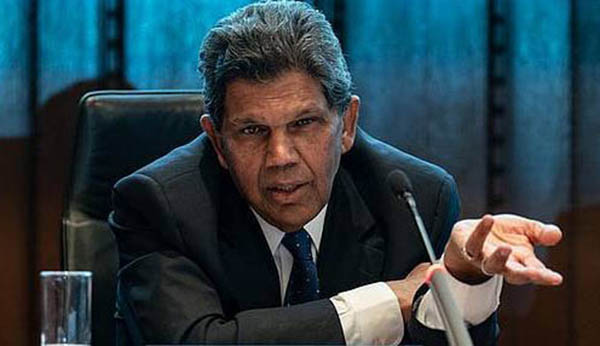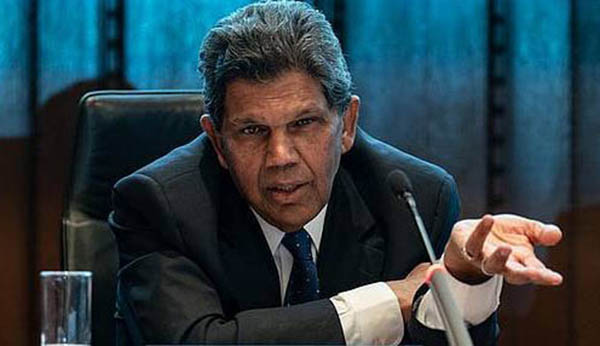By Dr Bertrand Ramcharan
The concept of a Caribbean Civilization has been championed in our region, but needs to be more widely taught and disseminated. Readers of Barbara Lallah’s epic novel on the history of the Jamaican people, Arch of Fire, get a panoramic picture of the diverse strands of our people, interlocking into Jamaica’s national motto: “Out of many, one people.”

The concept of Caribbean public law is inherent in the jurisprudence of the Caribbean Court of Justice and is taught in law faculties in the region. Less so is the concept of the Caribbean Public Order. It is important that it be better known and disseminated.
The European Court of Human Rights has invoked the concept of a ‘European public order’ in more than a hundred decisions and judgments. One of the early invocations of the concept was when the Court deprecated the illegal military coup against the established government in Greece. The Court insisted that this was against the public order of Europe.
At the United Nations, the International Law Commission has recently clarified the meaning of a peremptory norm of general international law as follows: “A peremptory norm of general international law is a norm accepted and recognized by the international community of States as a whole as a norm from which no derogation is permitted…”
Consistent with the jurisprudence of the International Court of Justice, for example in the Asylum Case (1950), there may also be peremptory norms of regional international law. The Treaty for the Prohibition of Nuclear Weapons in Latin America and the Caribbean, known as the Treaty of Tlateloco, has been signed and ratified by all 33 countries of Latin America and the Caribbean. It prohibits the testing, use, manufacture, production or acquisition by any means whatsoever of any nuclear weapons, directly or indirectly, within the said region. The Treaty commits its contracting parties to use the nuclear materials and facilities under their jurisdiction exclusively for peaceful purposes. It includes a legally binding obligation of nuclear weapon States not to deploy nuclear weapons within the Treaty’s Zone of Application, and not to use or threaten to use nuclear weapons against any of the Contracting Parties. This is undoubtedly part of the Caribbean Public Order.
In the Caribbean, we may say that, as in Africa, there is a peremptory regional public order norm that we will not recognize the illegal overthrow of governments. We saw this in the case of the overthrow of the Bishop government in Grenada, when the Caribbean was resolute in condemning the coup. By the same token, there is also a Caribbean public order norm that we will not recognize, and will deprecate, illegal foreign invasion. Grenada is again the precedent for this proposition.
Democracy and the Rule of Law are parts of the Caribbean Public Order. In the immortal words of the Universal Declaration of Human Rights, “The will of the people shall be the basis of the authority of governments.” The Caribbean Public Order is resolutely against the rigging of elections. This norm has been affirmed time after time. Caribbean support for the Rule of Law may be seen in the Caribbean Court of Justice’s deprecation of prolonged acting appointments of the Chancellor and the Chief Justice in Guyana. This is, without doubt, contrary to the Caribbean Public Order.
Respect for the dignity and equality of every human being is a sacred part of the Caribbean Public Order. The Caribbean very much subscribes to the opening article of the Universal Declaration of Human Rights that all human beings are born free and equal in dignity and rights. They are endowed with reason and conscience and should act towards one another in a spirit of fellowship and solidarity.
It is in vindication of this precept that the Caribbean has led the case for compensation for slavery and for gross violations of human rights. This is a simple matter of natural justice. The Caribbean Public Order includes respect for, and protection of, universal human rights. It is grounded in the principle of justice.
The right to life, the right to a clean, safe, and healthy environment, and the right to development are parts of the Caribbean Public Order. The Caribbean champions the right of access to the means of survival and for a dignified life. The Caribbean, vulnerable to climate change, and to the dangers of global warming and the rising oceans, is in the forefront of the struggle for a clean and safe environment. The Caribbean champions the right to development through regional and international cooperation.
The Caribbean Public Order embraces norms and values for gender equality, the rights of the child, and the rights of indigenous peoples.
The foregoing is a sampling of the pillars of the Caribbean Public Order. It is important that we promote awareness of it and endeavour, continuously, to uphold, and reinforce it.
Dr Bertrand Ramcharan is the former Chancellor of the University of Guyana and a recipient of the Eminent Caribbean International Jurist award of the Academy of the Caribbean Court of Justice.








